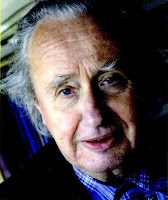 The latest story in the legends was about treachery. Lugh finds out who killed his father and manipulates them to oblige to paying a fine. At first the fine seems rather reasonable, if not light. The perpetrators happily agree to deliver skins, cattle, a horse and carriage and such. However, once they submitted themselves to the bloodfine, it turns out, Lugh meant a specific set of these items.
The latest story in the legends was about treachery. Lugh finds out who killed his father and manipulates them to oblige to paying a fine. At first the fine seems rather reasonable, if not light. The perpetrators happily agree to deliver skins, cattle, a horse and carriage and such. However, once they submitted themselves to the bloodfine, it turns out, Lugh meant a specific set of these items.Like for example, not just any bag of skin will do, but a very specific, magical, one that pours wine for nine days straight. These wonders needs to be hauled from all corners of the world, as far as Greece and Persia. We end with a cliffhanger, when the killers make a counterproposal.
I keep wondering about anthropological and historical questions. What is a Celtic bloodfine? How old are these tales and how can they tell of Greece and Persia? How did the Irish know of such faraway places?
The tales are brought in a dramatized way. The staff of the Celtic Myth Podshow are perfecting their skills and the podcast has developed from narrative to veritable audio drama - though it has to be noted that one of the actors rather blandly reads his lines whereas the others are truly staging a play.
A wonderful podcast in the spectrum altogether. The accompanying website is also worth a visit, with lots of complementary stuff among others maps and name lists.
Previously on the Celtic Myth Podshow:
Bres the beautiful,
Let Battle Commence!,
The Celtic Myth Podshow.
